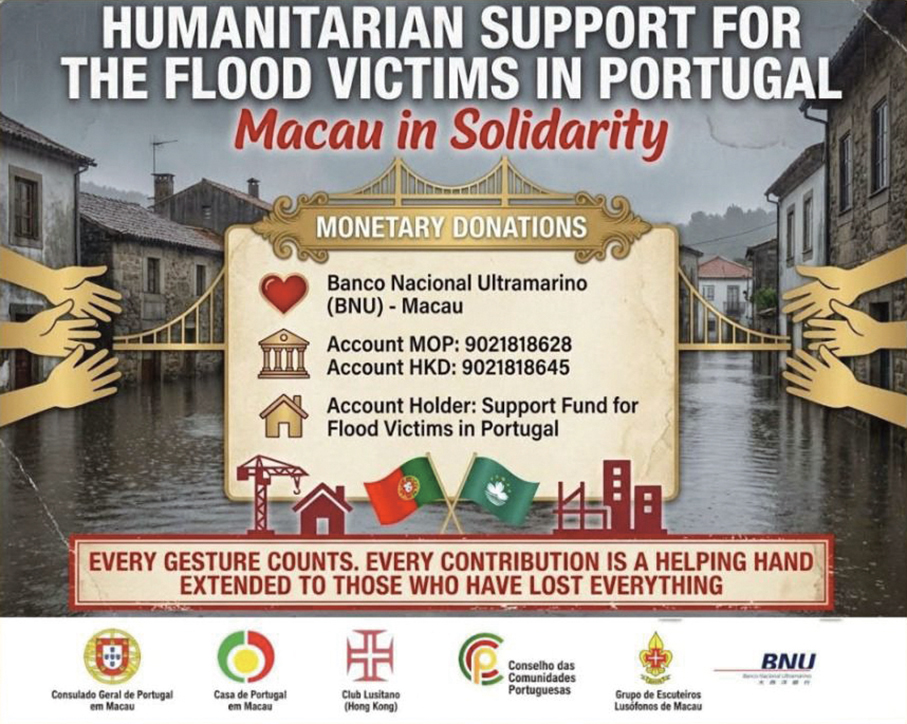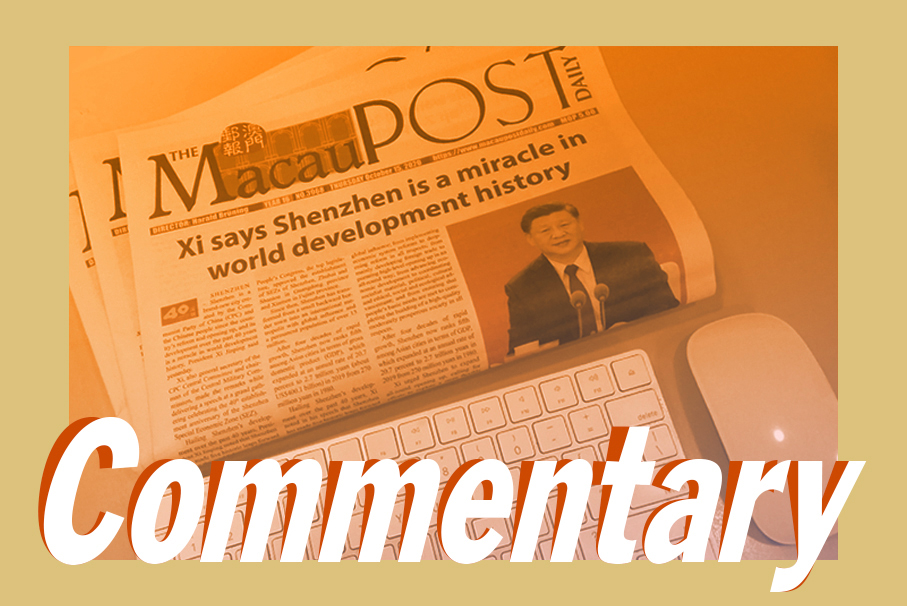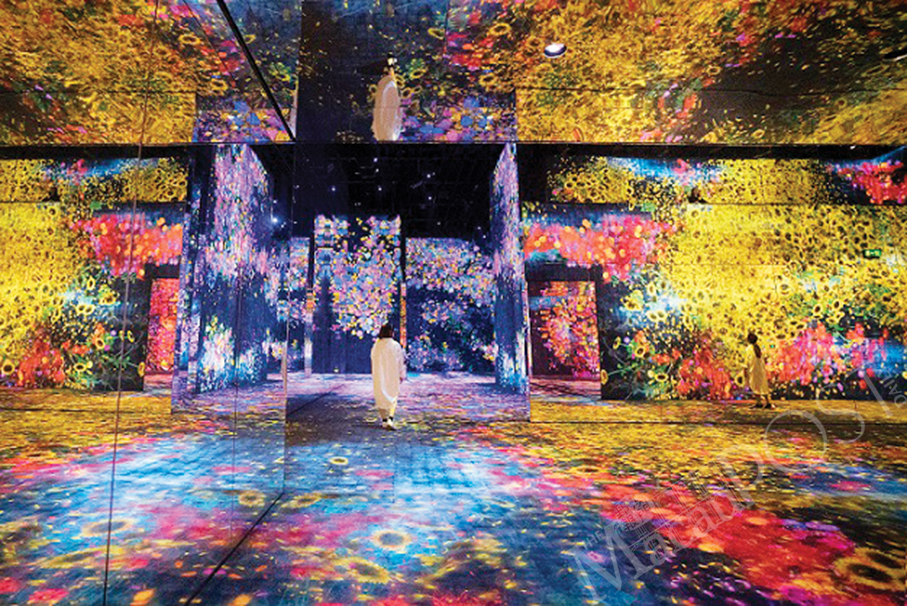Addressing yesterday’s daily press conference about Macau’s novel coronavirus (COVID-19) situation, the Health Bureau’s (SSM) Control of Communicable Diseases and Surveillance of Diseases Department Coordinator Leong Iek Hou urged residents to avoid travelling to COVID-19-high-prevalence regions – classified by the local government – so as to reduce the risk of infection.
Leong also urged residents to avoid visiting government offices for non-urgent matters for the time being. She also advised residents to make appointments first before visiting government offices for urgent or unavoidable matters.
Leong made the remarks yesterday evening at the bureau next to the public Conde de São Januário Hospital Centre.
Meanwhile, the local government’s Tourism Crisis Management Office (GGCT) announced in a statement last night that it has decided to issue a Level Two travel alert for South Korea as the number of confirmed cases in the East Asian country has hugely increased within a short period of time and community outbreaks have occurred there.
In the statement, the office urged local residents who plan to travel to, or are already in South Korea to reconsider their travel plans. The office advised residents to avoid non-essential travel to that country.
The statement said that according to information provided by the local travel industry, there are currently no tour groups from Macau in South Korea. Local travel agencies have cancelled all tour groups to South Korea until March 15, and are considering the extension of the cancellation until the end of next month, the statement said.
The local government last week classified the provinces of Guangdong, Henan and Zhejiang, as well as the municipalities of Beijing, Chongqing and Shanghai, as COVID-19-high-prevelance regions. Visitors arriving from these areas must undergo a medical examination upon arrival in Macau. Residents of Hubei are currently forbidden to leave the province.

The Health Bureau’s (SSM) Control of Communicable Diseases and Surveillance of Diseases Department Coordinator Leong Iek Hou addresses yesterday’s press conference at the bureau about the city’s novel coronavirus (COVID-19) situation. Photo: GCS
Under the new measure – which took effect at 00:00 on Thursday, visitors arriving from COVID-19-high-prevalence regions have to undergo a medical examination – which lasts six to eight hours. The local government has set up two stations where medical staff members carry out the medical examinations – one at the Workers Stadium next to the Barrier Gate checkpoint for visitors arriving at the border checkpoints on the peninsula and the other at the Taipa Ferry Terminal for visitors arriving at the border checkpoints in Taipa and Cotai.
The medical examination is also applicable to other visitors who have been in any high-prevalence regions 14 days before their intended entry into Macau.
The measure also covers local parallel traders who cross Macau-Zhuhai border checkpoints “an abnormal number of times” per day.
The government has said that the visitors from COVID-19-high-prevalence regions cover all those who have arrived in Macau from Zhuhai because Guangdong province is a high-prevalence region. Concerning those who have arrived in Macau by air, the local authorities will ask them whether they have been in any high-prevalence regions 14 days prior, and failing to tell the truth they face punishment, the government has said.
The local government added South Korea to its COVID-19-high-prevalence list yesterday, and therefore, starting from 00:00 yesterday, visitors arriving from South Korea – and other visitors who have been in the country 14 days prior – must also undergo a medical examination. The local government had decided to classify South Korea as a COVID-19-high-prevalence region after considering that that the number of confirmed cases in the East Asian country has sharply increased within a few days and community outbreaks have occurred there.
South Korea is so far the only foreign country on the local government’s COVID-19-high-prevalence list.
When asked by the media again during yesterday’s press conference whether the local government will add other countries and regions, such as Japan and Hong Kong, to the local government’s COVID-19-high-prevalence list, Leong reaffirmed that the local government is constantly monitoring and assessing the epidemic in various countries and regions across the world.
Leong said during yesterday’s press conference – which started at 5 p.m. – that despite no travel alert having been issued to South Korea, the local government urged local residents to avoid travelling to this country – as well as any other high-prevalence regions – so as to reduce the risk of being infected with the novel coronavirus.
Leong also reaffirmed that now is still a very important moment for Macau’s efforts against the viral threat. She said that with no new COVID-19 cases having been confirmed in Macau for 20 consecutive days did not mean that the government’s measures against the viral threat have come to an end, as new cases are constantly being confirmed in neighbouring regions, urging residents to continue to be vigilant against the viral threat.
‘Boring remarks’
Leong reaffirmed that the government has repeatedly stressed that residents should avoid going out unless necessary. She urged residents who need to go out to always adhere to the necessary protective measures such as wearing a mask and maintaining good personal hygiene. “Residents must ensure their hands are clean particularly before touching their eyes, nose or mouth, by washing their hands with water and hand wash gel or by cleaning their hands with alcohol gel. Residents must definitely remember all this,” Leong said.
“These remarks seem very boring as they are repeatedly mentioned every day. But these are the most important things, and we must properly carry out the protective measures, which is the most useful thing to the government’s epidemic prevention and control work,” Leong said.
Announcement 14 days prior to class resumption
Meanwhile, government officials told lawmakers yesterday during a meeting of the legislature’s Follow-up Committee for Public Administration Affairs that the government will make a formal announcement 14 days before the resumption of classes in local schools, according to lawmaker Si Ka Lon, who briefed reporters after a closed-door meeting of the committee.
The members of the committee asked government officials, including Secretary for Social Affairs and Culture Elsie Ao Ieong U, to brief them about the government’s ongoing measures against the COVID-19 epidemic.
Meetings of the legislature’s several committees are customarily held in meeting rooms in the Legislative Assembly (AL) building. However, due to the ongoing epidemic, yesterday’s committee meeting was held in the hemicycle, where plenary sessions are held. According to the legislature’s website, all committee meetings later this month are scheduled to be held in the hemicycle, which offers attendees more space than the building’s much smaller meeting rooms.
The government had repeatedly said before that it would make an announcement seven days prior before classes in local schools are resumed.
According to Si, the officials said during yesterday’s meeting that the government has decided to extend the prior notice from 7 days to 14 days.
5th round of selling facemasks
According to Si, the officials also confirmed in the meeting that the government will launch the fifth round of its facemask purchase scheme – at the fixed price of eight patacas for 10 facemasks for local residents and non-resident workers. The current fourth round of the scheme was launched on Saturday.
Under the scheme, which was first launch by the government on January 23, each local resident and non-resident worker is entitled to buy 10 facemasks at the fixed price of eight patacas every 10 days from 87 outlets (designated pharmacies, public health centres and a number of community association venues) upon presentation of their Macau ID cards or work permits (informally known as “blue cards”).
Si quoted the officials as saying that the government is facing a difficulty in purchasing facemasks from around the world as some countries have banned the exports of facemasks.










